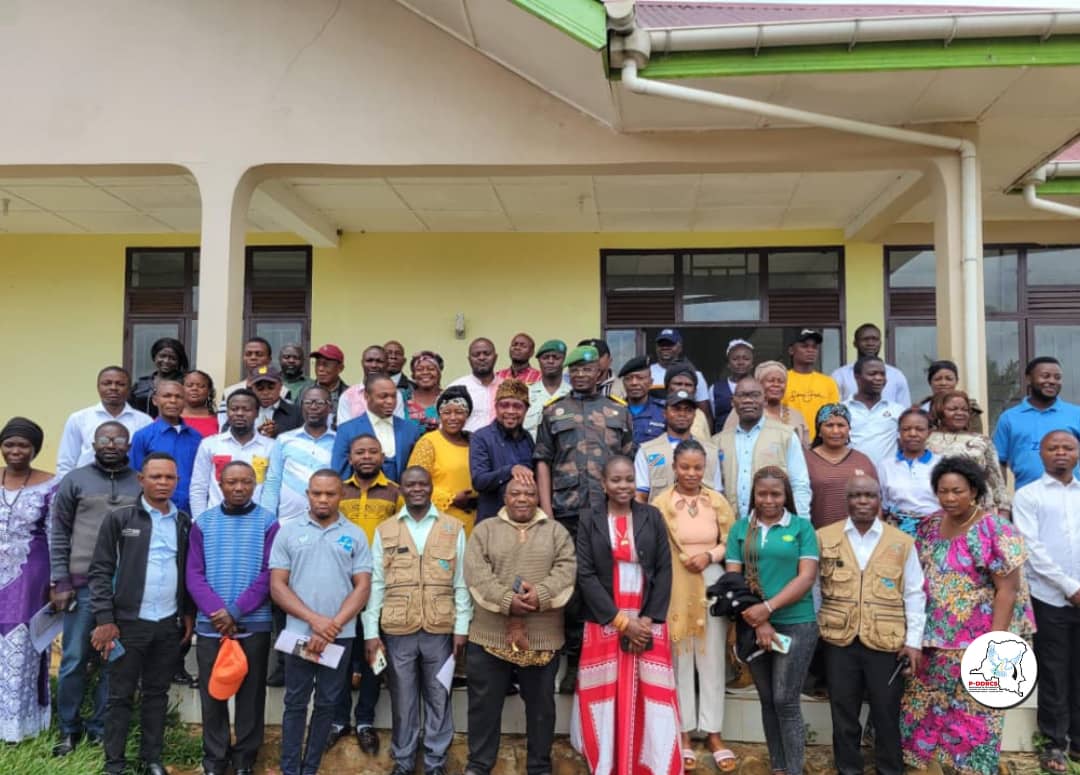ITURI: STRENGTHENING THE CAPACITY OF TRADITIONAL AUTHORITIES ON MEDIATION AND ALTERNATIVE CONFLICT RESOLUTION IN IRUMU

A total of 66 traditional leaders, including chiefs of chiefdoms, sectors, and groupment’s—participated in a capacity-building workshop on mediation and peaceful conflict resolution held from October 31 to November 1, 2025, in the headquarters of Irumu Territory, Ituri Province.
This workshop is part of the broader peacebuilding and stabilization efforts being undertaken in Ituri Province. The National Disarmament, Demobilization, Community Recovery, and Stabilization Programme (P-DDRCS) was represented by Mr. Jean-Jacques Upenji, Head of the Communications Unit and delegate of the Acting Provincial Coordinator of P-DDRCS Ituri.

Mr. Jean Jacques Upenji outlined the key achievements of the program in the province, shared the current challenges, and issued several recommendations. He also recalled the guiding principles and strategic pillars of the National DDR Strategy.
Since its establishment, the P-DDRCS Ituri has made significant progress. These include the development of the provincial operational plan, sensitization strategies, disarmament and demobilization frameworks, and the joint action plan for operations in Ituri. The program has also conducted several capacity-building sessions for staff and organized inter-community dialogue forums involving Alur, Bira, Hema, Lendu, and Mambamusa communities across the province.

Among the program’s accomplishments are the facilitation of the Aru I and II dialogues between armed groups, the sensitization and engagement of local armed groups including CODECO, FRPI, FPIC, various Mai-Mai factions, and self-defense militias in Djugu, Irumu, Mahagi, and Mambasa. The program has successfully disarmed and demobilized 1,720 ex-combatants, including 62 women, and recovered 683 weapons, over 10,000 rounds of ammunition, and other military equipment. Furthermore, 1,431 children associated with armed groups have been withdrawn and reintegrated. Several reintegration and stabilization projects have been launched in the territories of Irumu and Djugu to benefit at-risk youth, ex-combatants, and host communities.

These projects—funded by the Stabilization Coherence Fund, the European Union, MONUSCO, and the Government of the Democratic Republic of Congo through the P-DDRCS—have enabled the implementation of labour-intensive public works (HIMO), the construction of « peace markets » and bridges, and the distribution of livestock in communities such as Tshere, Rwampara, Batale, and Katoto.
However, challenges remain. Mr. Upenji noted persistent difficulties including delays in disbursement of reintegration funds, the continued activity of ADF and other armed groups such as CODECO and CRP, the occupation of localities by armed factions, the presence of Banyabwisha perceived as logistical support for the ADF, restricted mobility on key roads due to insecurity, the persistence of hate speech, illicit war economies, and manipulation of community narratives. To address these challenges, the program recommends regular funding, sustained sensitization of armed groups and communities, improved security measures, and the restoration of state authority.

Participants also called for the reactivation of legal mining operations by SOKIMO and the safe return of internally displaced persons to their pacified areas of origin. The event was opened and closed by Colonel Robert Mande, Administrator of Irumu Territory. Also in attendance were Ms. Claudine Nzeni, Political Affairs Advisor to the Military Governor, representatives from the Ministry of Interior and Traditional Affairs, and Ms. Gloire Mongo, Coordinator of the NGO Mwangaza Peace.
The workshop was supported by the Embassy of Sweden in the DRC through UNDP.
P-DDRCS Communications Unit



